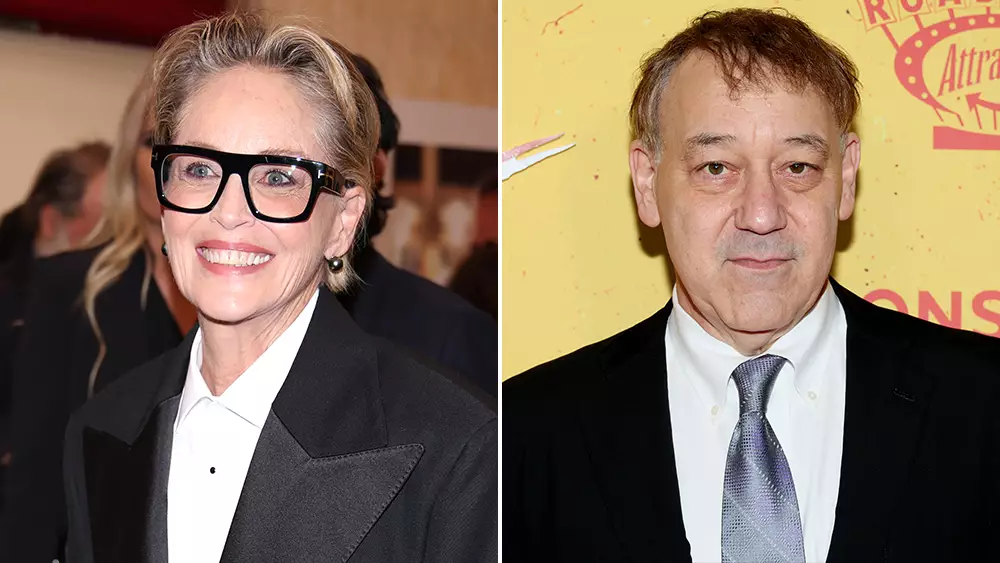During a recent question-and-answer session at the Torino Film Festival, Sharon Stone took the opportunity to delve into her past experiences in Hollywood, particularly reflecting on her role in the 1995 film *The Quick and the Dead*. In a candid manner, she voiced some of her grievances about director Sam Raimi’s apparent lack of loyalty, coloring her experiences with both disappointment and introspection. Stone, who was being honored with a lifetime achievement award at the festival while also presenting the film, drew a stark comparison between her collaborations with Raimi and the esteemed director Martin Scorsese.
This discussion reignited interest in *The Quick and the Dead*, a film that initially did not fare well critically or financially but has since garnered a dedicated cult following. It follows Stone’s character, a mysterious gunslinger seeking revenge for her father’s death at the hands of a tyrannical mayor, played by Gene Hackman. The film’s blend of Western and action-thriller genres showcased the actress in a strong, assertive role, which contrasted sharply with some of the more traditional portrayals of women in Hollywood at the time.
Comparative Relationships in Hollywood
Stone’s reflections on her relationships with directors serve as an interesting lens through which to examine the broader cultural dynamics in Hollywood. While praising Raimi for his talent, she highlighted a key difference in their working relationship when compared to her ongoing rapport with Scorsese. According to Stone, Scorsese embodies a sense of loyalty and familial connection that has fostered mutual respect and collaboration over time. In her words, “Marty and I still have a relationship and continue to work together,” which underscores the importance of lasting professional ties in an industry often marked by fleeting connections.
Conversely, Stone expressed a sense of betrayal by Raimi, who, despite their productive collaboration, did not maintain their relationship following *The Quick and the Dead*. She articulated a longing for acknowledgment, stating that Raimi never expressed gratitude or continued their professional engagement. This bizarre duality encapsulates the unpredictability of Hollywood relationships, where filmmakers can rise and fall in careers, sometimes abandoning those who helped elevate them.
Aside from her commentary on loyalty, Stone turned the conversation toward the entrenched gender biases present in Hollywood, particularly concerning women directors. Stone recounted her efforts to push beyond acting into directing, explaining how she faced substantial barriers in the industry. Despite her substantial credentials and successful pitch for a project—one that received acclaim as potentially the “best pitch anyone ever heard”—she was continuously met with resistance.
This systemic sexism, which she described as overwhelming, illustrates a pervasive attitude in the film industry during the late 20th century that remains relevant today. “I feel that my intelligence was wasted trying to convince lesser intelligent studio heads,” she stated, highlighting not only her frustration with the barriers to entry for women in directing but also the undervaluation of their contributions at the decision-making levels in studios.
Stone’s narrative serves as both a personal testimony and a broader commentary on the obstacles that women in Hollywood have historically faced. While she possessively embraced her successes and the collaborative nature of her various roles, her candidness about her struggles raises important questions regarding equity within the industry.
As Stone reflects on her journey, her narrative not only offers keen insights into her individual experiences but also invites critical examination of the industry at large. The juxtaposition of loyalty, relationships, and the obstacles for women aspiring to direct fields in Hollywood presents a compelling discussion about authenticity, creativity, and ongoing inequality.
At a festival honoring her contributions to cinema, and amid an evolving landscape for women in film, Stone’s recollections spotlight the changing tides of Hollywood, encouraging future generations to learn from the past while striving to create a more inclusive, equitable future in the arts. Ultimately, her journey underscores the significance of recognition, respect, and the power of loyalty—not only in personal relationships but in the art of storytelling itself.

